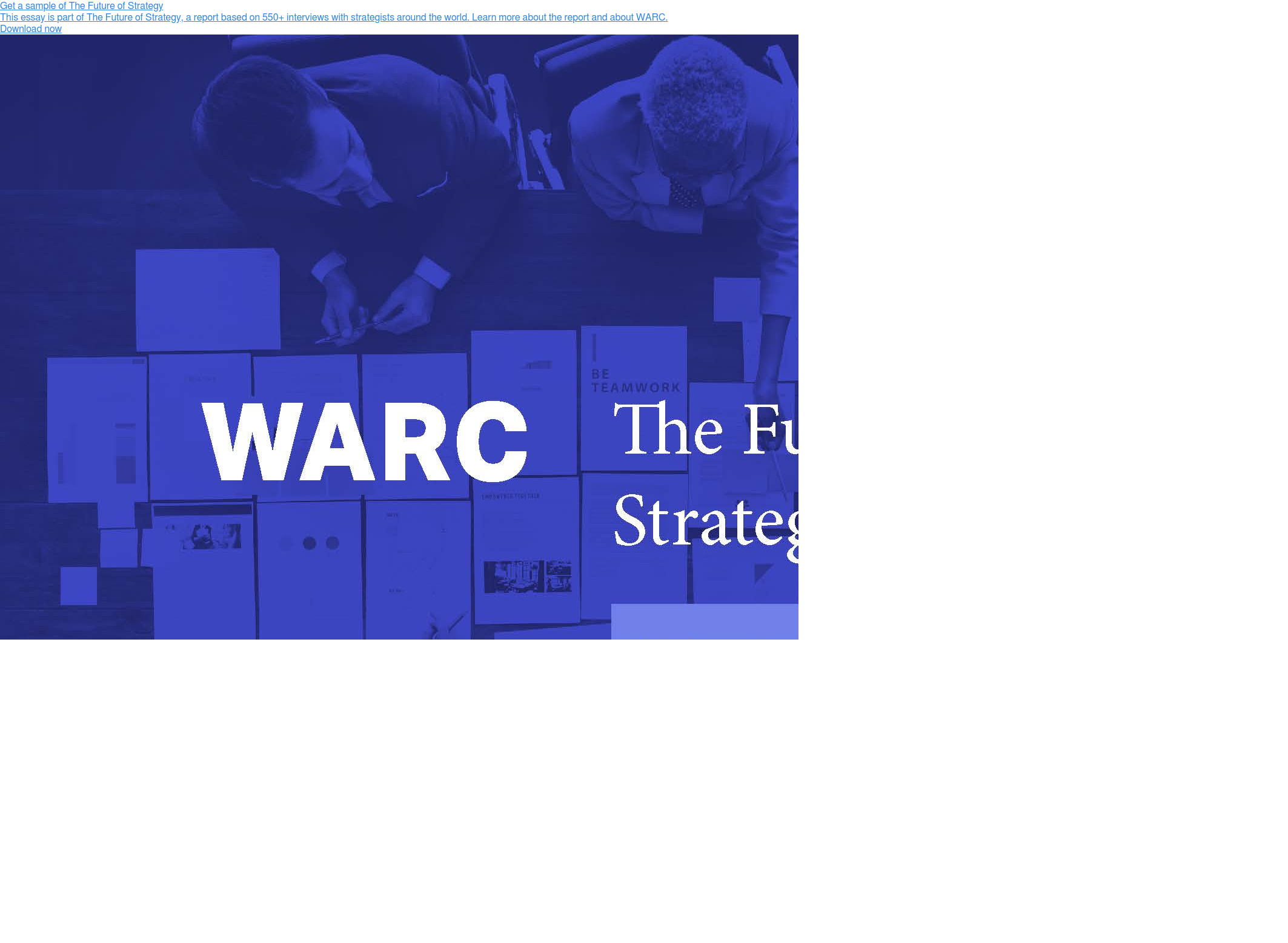Strategic planning has become devalued, says Leo Rayman. It needs to focus on what matters – not tech and data but big ideas and commercial growth.
I’m a former planner who sold out – I became a CEO of a creative agency. I really love strategic planning. But I’m also frustrated with the way it has become devalued.
Fundamentally, why is strategy important? Because good strategies provide and incredibly clear direction in a complicated world, and there’s not enough people making good decisions that provide a clear direction. It’s an amazing skill to have.
But, I’ve got some problems with strategy. First – it can be a case of ‘all the gear, no idea’.
The fascination with the technology that we now need to do our brilliant, modern, integrated, fully end-to-end, digital personalised marketing experience is taking our eyes off the power of a powerful idea. It’s important to be able to understand the world of tech, but not at the expense of the idea. There’s a global shortage today, and the global shortage is in really powerful ideas. I don’t just mean in marketing and creativity, I mean generally. So let’s fight for that, because that’s what great strategy people do.
Second is data porn. Data porn is the love of data for its own sake. We see it at every single meeting. Data is fascinating. It’s really fun to get a really complicated set of data and have time to play around with it and look through it. But anyone who’s any good knows you can tell almost any story you want with the numbers. The challenge actually is: ‘what is the ratio of signal to noise?’ And there is so much noise, no one’s thinking hard enough about the signal any more.
A third problem is ‘learned helplessness’. It’s a psychological condition, which is: ‘I am used to not having to take a very active role in driving business forward. I am used to not having to make difficult phone calls to tell our clients or our partners that things aren’t working out right. I’m used to not having to pay the bill at the restaurant. I am used to not having to call the CEO or CMO of the client organisation and go out for dinner and have a proper conversation about the problems they face. This is because, I think, planners are have accepted that they don’t need to take active role. Perhaps it’s fear even? So I would ask you to take a more muscular approach to strategy and the value it can add.
Fourth: most strategic planning is definitely not commercial. I did 15 years as a strategic planner. Did I ever truly understand what it feels like to truly struggle with profit and loss? Not really! How can you possibly be a powerful adviser if you don’t have a visceral grasp of the commercial realities. The most wonderful thing about being a strategic person in an organisation is that your job is to accelerate growth. Anyone working in CPG / FMCG knows how flat growth can be – there are so many places where growth acceleration should be what we’re focusing on.
There’s another problem, and it’s one we’re struggling with across the creative industry: an ecosystem of partners that isn’t really thriving financially. Is that really good for the overall marketing environment? We’re selling time. Can you sell strategy by the hour or by the minute? Possibly. But do your best ideas happen in time-based chunks? Not really. Breakthrough thinking can happen as a result of months of reflection followed by a killer idea that happens in the shower.
Why don’t we price to value? Why don’t creative companies say to their clients ‘What I’m going to talk to you about today is worth $100 million dollars over five years, so I think we can say I’ll take a million dollars for that help.’ It shouldn’t have to matter how many people and how many hours it takes us to get there. We can have a business model based in selling great ideas by the minute.
The best lesson I think we can get from the consultancies is their ability to model future outcomes, to make a brilliant case for what our clients should be investing in and how it should work. I was a planner for 15 years. We hardly ever had to write a business case because someone else was always responsible. Many planners can brilliantly explain how that campaign worked, show how the historic effectiveness data added up, and win a golden award for effectiveness. Which is fun. But what about predictive cases for growth? What value is about to be created – that’s what they need now.
But we aren’t management consultants, we are creative people. We are the ‘line breakers’ – in American Football you have the guys front row fighting it out; but our job, I think, is to see an opportunity miles away and chuck the long ball. That’s what a big powerful idea is. If you’re looking at the work in Cannes, there’s lots of good stuff, but how much of it do we think is properly ‘line breaking’? I’m not so sure.
I’ll finish with a plea. Be ‘unhireable’. What I mean is that one of the benefits of hiring a creative company is to foster a culture that enables unpredictable thinking and creative risk-taking. To foster a culture where you can manage and look after these very difficult-to-look-after people. Very creative people are difficult to look after. And that’s the opportunity: to provide a place or a home for them, because many organisations just can’t handle that kind of person. And as long as they believe and understand that our role is to drive growth through line-breaking thinking, through people who provide a brilliant external perspective, we’ll be fine.


